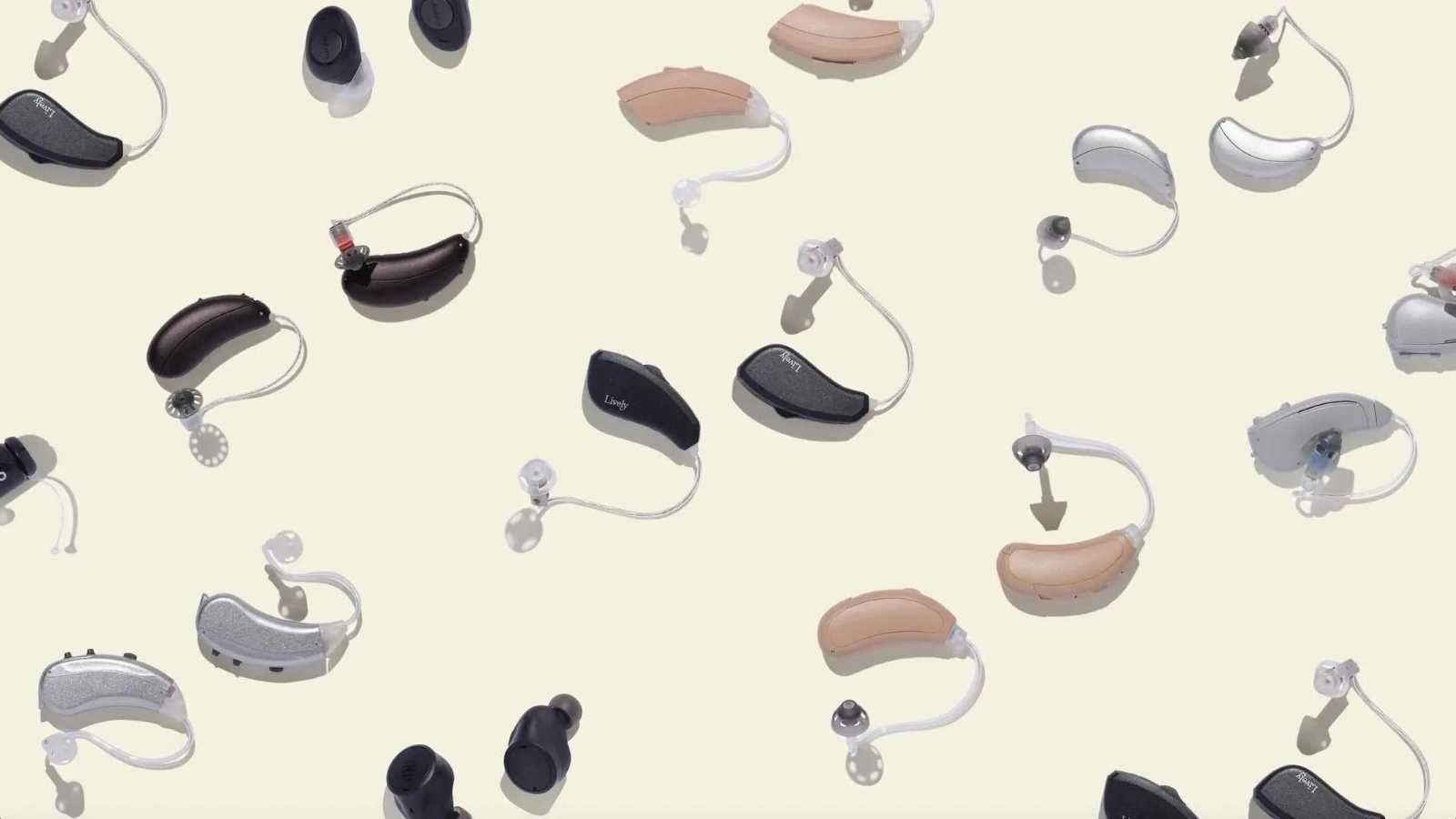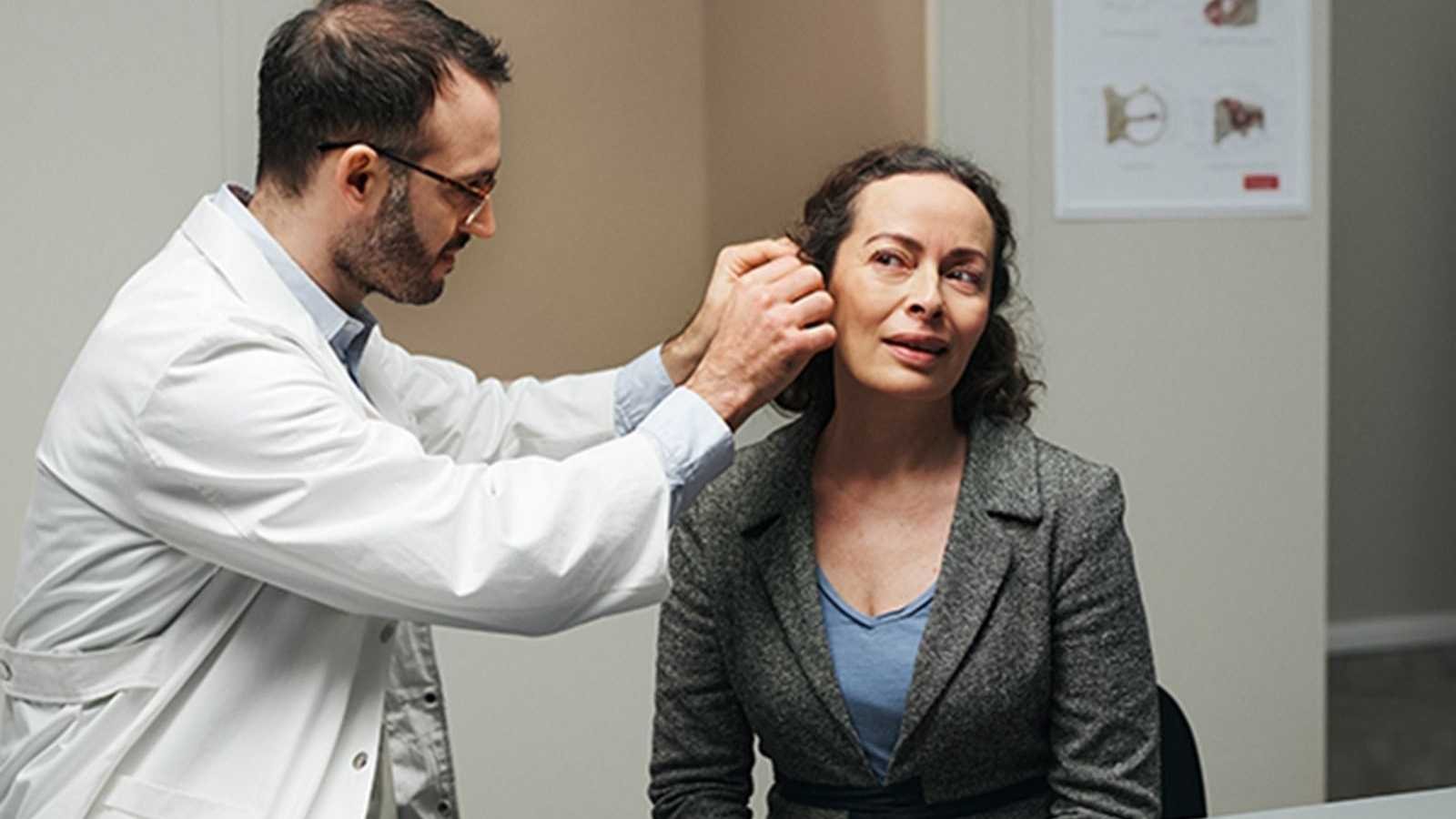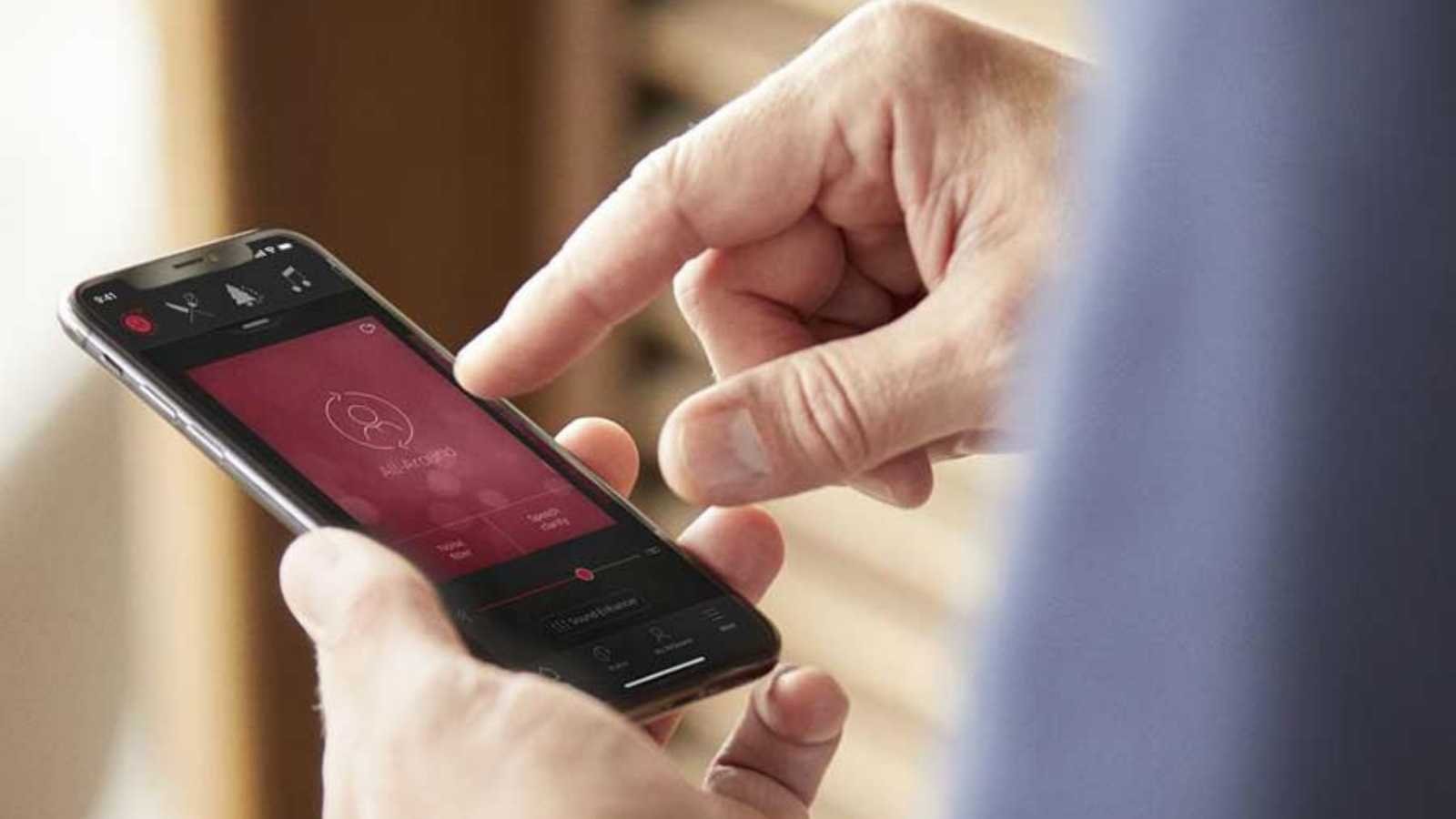Key Takeaways:
- Hearing loss is common and many of us know someone with hearing loss. However, not everyone is ready to pursue hearing aids.
- Whether your friend or loved one uses hearing aids or not, there are communication strategies that can make understanding easier.

Over the last few years the addition of masks and plexiglass to our daily lives has given people with normal hearing a glimpse into the frustrations of life with hearing loss.
Often family members, friends, and loved ones are the first to notice signs of a loved one's hearing difficulty.
If someone you love has hearing loss, there are several practical ways that you can help support them. In this article, we'll explore how anyone can support their loved ones with hearing loss.
How to Communicate Clearly With Someone With Hearing Loss

Whether your family member wears hearing aids or not, certain communication strategies benefit everyone.
Putting in some extra effort to use clear communication can help them to get the most out of their hearing aids and enjoy taking part in the conversation.
Here are some tips on how to communicate with a loved one who has hearing loss:
Get their attention before you start speaking.
Try tapping them on the shoulder, or calling their name. Make eye contact. It's much easier to understand and listen when you focus on the conversation.
Face them when speaking so they can see your lips.
Visual cues are beneficial; they allow the listener to understand more clearly and pick up on the tone of the conversation. Talking from another room, looking away, or not facing them will make it much harder to hear and understand.
Be within 5 - 7 feet.
More distance than this will make it harder to understand since sound will scatter and make understanding more difficult.
Speak slowly and clearly, articulating your words well.
No need to exaggerate the pronunciation. Just speak clearly and use natural pauses. Shouting doesn't help, but speaking clearly is very helpful.
Avoid talking over other environmental noises, such as the television or radio.
Turn off any background noise or move away from the noise if you can, before beginning a conversation. A simple change like this can make all the difference!
Repeat yourself if necessary, and encourage them to ask questions if they don't understand something.
Communication is a two-way street, and it's also important for your loved one to advocate for themselves if they don't understand something.
Paraphrase using different words.
For example, the word "first" can be harder to understand than "one" for someone with sensorineural hearing loss. These words can have similar meanings, and paraphrasing using synonyms can be very helpful.
Take time to confirm.
If you're giving specific instructions or detailed information, ask them to repeat it.
Move to the better side.
If the person you're speaking to hears better in one ear than the other, position yourself towards the better-hearing ear. They'll appreciate it, and your conversation will go much more smoothly.
Ways to Support A Loved One's Hearing Aid Journey

Hearing loss can be frustrating for everyone involved. When hearing loss has occurred gradually over a long period, it can be challenging for a person to realize how much they're missing.
Family members and friends are uniquely positioned to support, and often, that support begins with an empathetic conversation about treatment options.
Here are some ways to help support a loved one in the process of getting hearing aids.
Offer to join them in their hearing healthcare appointments.

Often, the process of getting hearing aids can be overwhelming for the person who is newly diagnosed with hearing loss. There is a lot of new information to learn, and getting comfortable with the technology and all that comes with it can take time. It's a big help to have someone by their side during appointments to reinforce important information and offer support. Having that extra set of ears can make all the difference in helping your loved one feel confident as they start their journey with hearing aids.
During the hearing aid trial period, help them to notice improvement.
It's nice to see your loved one or family member with hearing aids more engaged in conversation and feeling more socially connected. The hearing aid trial period is a crucial time in the process. It's important to ensure that a hearing aid is comfortable and provides appropriate benefits. Some encouragement and reinforcement are helpful here. Point out to your loved one when you notice how much better they're doing in specific situations. These are milestones to celebrate!
Remind them that not everything will not be perfect.
A hearing aid can help improve communication in many ways. However, there may also be situations or times when the hearing aid is not working optimally.
For example, background noise is a challenging situation, and a hearing aid is made to help by reducing its impact. However, even the most sophisticated hearing aid can't erase background noise.
Make a note of any difficulties or concerns you encounter, and communicate those concerns to the audiologist or healthcare professional at the next visit.

If you are tech savvy you can offer to help adjust a loved one's hearing aid programs or fine tuning options through their hearing aid app.
Remember, hearing healthcare is not a "set it and forget it" but rather an ongoing relationship to optimize what your hearing aids can do for you.
What If My Family Member Isn't Ready to Get Hearing Aids?
Everyone is at a different point in their journey. Some people have noticed hearing difficulty and feel ready to pursue treatment options. Others aren't ready just yet. It's important to speak openly about your desire to support them to live a happy, healthy life. Hearing health is part of overall health, and addressing hearing loss can improve quality of life.
When it comes from a place of care and support, your family member knows that they can count on you regardless of their decision to pursue hearing aids. Sometimes this is enough to help your loved one consider taking the next step.
However, if they're truly not ready right now, they still need your support. Using communication strategies can benefit everyone, whether they wear hearing aids or not.
If a loved one wants a lower barrier starting point, you could point them to an online hearing test to better understand their hearing loss without the commitment of a doctor's visit.
Conclusion
It is important to remember that clear communication makes everything easier. With time and attention, you can help your loved one with hearing loss maximize their communication. Wearing hearing aids involves an adjustment period but can make a world of difference.
Using these communication strategies will help make the conversation flow more smoothly and let everyone enjoy participating in the conversation. Support your loved one in their hearing aid journey and communicate clearly and intentionally for the best outcomes with their new devices!






